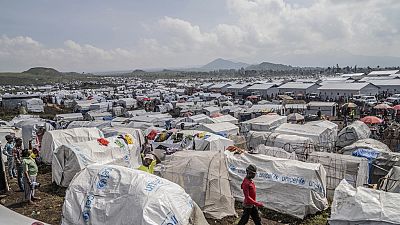About 4,000 Rwandan troops are in Congo operating with the M23 rebel group – UN Experts

RWANDA
Between 3,000 and 4,000 Rwanda government forces are deployed in neighbouring eastern Congo, operating alongside the M23 rebel group which has been making major advances, U.N. experts said in a report circulated Wednesday.
The experts called the estimate of Rwandan troops “conservative” and said their “systematic support and presence” supporting M23 in its territorial conquest is a sanctionable act, and their deployment is a violation of Congo’s sovereignty and territorial integrity.
The Rwandan forces’ “de facto control and direction over M23 operations also renders Rwanda liable for the actions of M23,” the panel of experts said in the 293-page report to the U.N. Security Council.
Eastern Congo has struggled with armed violence as more than 120 groups fight for power, land and valuable mineral resources, while others try to defend their communities. Some armed groups have been accused of mass killings.
Congo’s President Felix Tshisekedi and U.S. and U.N. experts have accused Rwanda of giving military backing to M23. Rwanda denies the claim, but in February it effectively admitted that it has troops and missile systems in eastern Congo to safeguard its security, pointing to a buildup of Congolese forces near the border.
At the root of the current crisis is the 1994 Rwanda genocide. The carnage began when a plane carrying Rwandan President Juvénal Habyarimana was shot down, killing the leader, who like most Rwandans was an ethnic Hutu. The country’s minority Tutsis were blamed, and bands of Hutu extremists began killing them with support from Rwanda’s army, police and militias.
Rwanda’s current president, Paul Kagame, a Tutsi and former opposition military commander, is widely credited with stopping the genocide which killed more than 800,000 ethnic Tutsis and moderate Hutus who tried to protect them. Thousands of Hutus fled Rwanda to neighbouring eastern Congo.
The M23 rebels are largely Congolese ethnic Tutsis, who became prominent when their fighters seized Goma, eastern Congo’s largest city on the border with Rwanda, in November 2012.
Rwandan Ambassador Ernest Rwamucyo told the Security Council Monday that Congo and the international community have failed to ensure the protection of Congolese citizens, especially Congolese Tutsis, who he claimed “are being ethnically cleansed by armed groups.”
He reiterated that the FDLR rebel group — which he said is supported by Congo’s highest authorities and has vowed to cause regime change in Rwanda — remains “a threat to Rwanda and the Great Lakes region.” The FDLR is comprised mainly of Hutus opposed to Tutsi influence and reportedly includes some Hutus who participated in the Rwanda genocide.
The panel of experts said the estimated 3,000 to 4,000 Rwandan troops in Congo were deployed in three regions of eastern North Kivu – Nyiragongo, Rutshuru and Masisi – when their report was drafted in April. It said the troops were from the military’s 2nd and 3rd divisions, citing intelligence and security sources close to M23 and the Rwandan military and confidential documents.
The experts said Rwandan military interventions and operations in the three territories “were critical to the impressive territorial expansion achieved between January and March 2024.”
The top U.N. official in Congo, special envoy Bintou Keita, told the council Monday that she was extremely concerned at the continuing rapid expansion of attacks by the M23 rebel group and its capture of several strategic locations in eastern North Kivu in the last two weeks, and the spillover into neighbouring South Kivu.
A two-week humanitarian truce began last Friday in eastern Congo, but there has been no indication the violence has stopped.
The experts said they documented the proliferation and use of advanced military technology and equipment, mainly from Rwanda, by M23 and Rwandan forces in violation of a U.N. arms embargo. It cited short-range air defence systems, mortar shells carried by drones, and 120mm guided mortar shells with “precision strike capability and high lethality.”
The experts said these advances altered the “conflict dynamics” including by grounding all Congolese military air assets.
In December, a new political-military movement called the Alliance Fleuve Congo, or AFC was launched to unite armed groups, political parties and civil society against Congo’s government. But the experts said the AFC “failed to coalesce the majority of political and armed actors against the government.”



